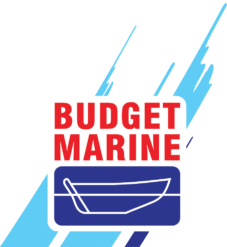FIRE can be catastrophic on a boat, whether on a day trip, halfway through a long passage, in a busy boatyard, or on a crowded marina.
We share these tips that we hope will help protect you, your crew, and your boat.

Install the right type and right quantity of fire extinguishers for your vessel.
Check the legal requirements of the countries you plan to visit. (USCG requires boats less than 26 feet to carry one B-I extinguisher, boats 26–40 feet two B-I or one B-II, boats 40 – 65 feet three B-I or one B-II and one B-I.)

Place extinguishers strategically within reasonable reach of possible flashpoints (galley, engine, gas & fuel containers, batteries, electrical board).
Crew shouldn’t have to travel more than half the length of their boat to get to a fire extinguisher. If stored out of sight, a sticker should indicate its location.

Inspect extinguishers annually to ensure they are undamaged, and properly charged and stored. Record details and recharge dates on an inspection card.
Invert and pat the bottom of dry chemical extinguishers regularly to prevent contents from settling.

Fire blankets smother flames by starving them of oxygen to extinguish the fire before it gets out of control. A damp tea towel or pouring a large quantity of baking soda over the flames can also help smother very small fires.

Use strong brackets, straps, housing to hold each extinguisher firmly in rough conditions and prevent accidental release of its contents. Dry chemical discharge in an enclosed cabin can cause allergic reaction and breathing problems.

Fire-fighting buckets should be made of sturdy metal or robust rubber, with a strong handle and a rope lanyard long enough to reach the water from the deck.
Sea water deck wash pumps and, as a last resort, fresh water aft deck shower pumps offer additional firefighting ability, as extinguishers can be exhausted in minutes.

Propane detectors to stop propane accumulating in low areas/bilges, thermocouples to ensure propane does not flow to the stove burner if the flame accidentally goes out, solenoid control valves to switch propane off when not cooking – these essential fire prevention items need to be well maintained.

Be alert for possible hazards – propane bottles poorly stored, overheated batteries, flammable oil rags/combustible materials in the engine room, welding/cutting work causing sparks. If refuelling, check bilges (sniff test) before turning electrics back on.

In the boatyard check the location of fire-fighting equipment and whether a good distance is kept between yachts. Don’t leave half empty paint/thinners tins and scrap cloth lying around your boat and store flares and flammable materials safely.

Act Quickly – Once a fire has started on a boat, unless put out very fast whilst still small, it can rapidly become uncontrollable. There will be times when it is unwise to be a hero. Out at sea you need to send a Mayday. In a boatyard or on a marina, call the fire department before it is too late.

